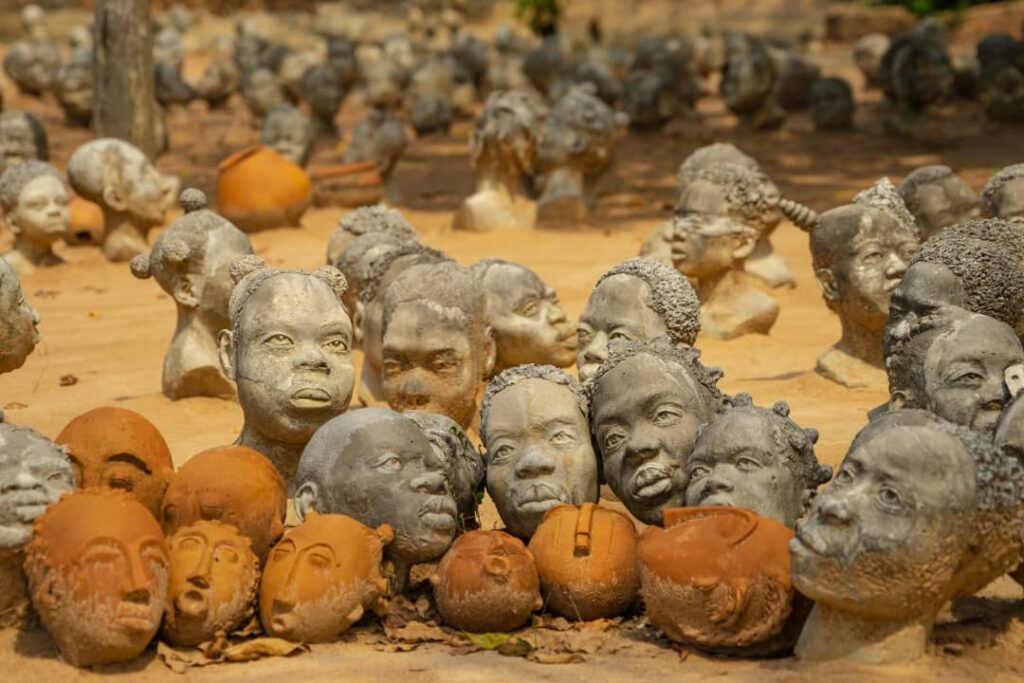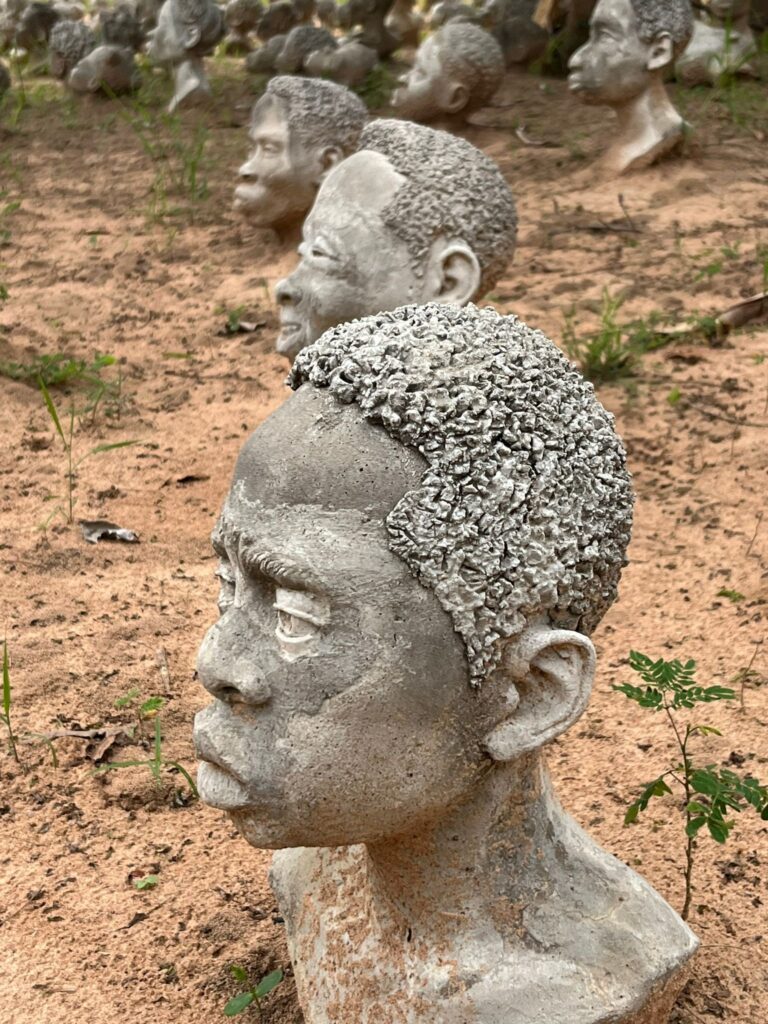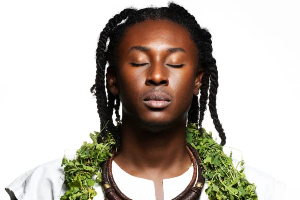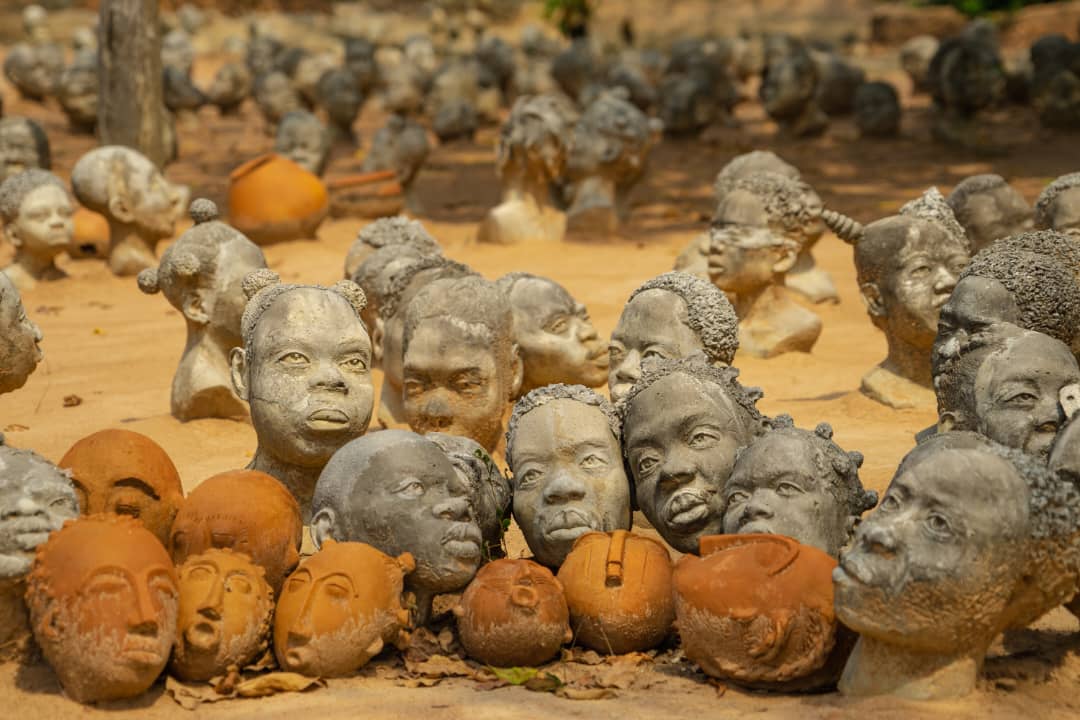Before the advent of modern photography, the Akan people, one of the largest and most prominent ethnic groups in Ghana, preserved family portraits of deceased individuals through sculpture. This practice, passed down through generations, held deep cultural significance as a way to honor African ancestors. However, colonialism disrupted this tradition, and the practice of Ancestor Veneration was misrepresented and demonized across much of Africa. The Akans view death not as an end, but as a transition to the realm of ancestors, where life continues in a different form. Ghanaian artist and educator Kwame Akoto-Bamfo is leading efforts to reignite interest in traditional African funerary customs through his art and educational campaigns.

Akoto-Bamfo first garnered public attention in 2015 with a series of online campaigns, culminating in a large-scale installation in Cape Coast, Ghana, celebrating the country’s 60th anniversary of independence from British colonial rule. His piece, “Nsiso,” became a prominent symbol of this movement.
In 2019, the artist founded the Nkyinkyim Museum as part of his non-profit initiative, the Ancestor Project. Located 180 km from Accra in Nuhalenya-Ada, the museum has become a vital space for people of African descent to engage in restorative healing through art and education. The museum’s annual Ancestor Veneration ceremony has played a key role in reviving African traditional funerary arts. Its Sacred Area now houses thousands of unique portrait heads, with a goal of reaching 11,111, symbolizing strength and spiritual unity when these heads are united. Visitors to the Sacred Area are encouraged to respect traditional practices, such as removing shoes, knocking before entering, offering libations, and refraining from selfies or photographs that could commercialize or disrespect sacred art forms.

Akoto-Bamfo explains, “I am Akan, so my Nsiso began with Akan traditional rites, but our ceremonies now embrace other African ethnic groups, including the Ga-Dangme, Yoruba, Ewe, and African Americans in the diaspora.” During the third annual Ancestor Veneration in October 2024, he expressed his gratitude to the Adibea of Ada and various African royals for supporting the revival of sacred funerary art and rites.
The Akan Nsiso funerary art bears a close resemblance to the bronze heads of Ife and Benin from the 13th century. Akoto-Bamfo commented, “Many people mistakenly think hyper-realistic portraits aren’t African, but they are, just look at the Ife and Benin heads.” His hyper-realistic portraits, as well as those rendered in various tribal styles, embody the diverse traditions of African funerary art.

The rituals performed around these portrait heads complete the sacred rites, with the Ancestor Veneration ceremony ensuring that the spirits of the ancestors are honored and nourished through the portraits representing them. Chief Nene Titrim Buertey III of Adibea emphasized the importance of the program, stating, “It’s crucial for Africans and diasporans to learn about our past, customs, and traditions. The Nkyinkyim Veneration ceremony helps bridge the gap for our relatives in the diaspora to connect with their heritage.”
Akoto-Bamfo’s work has had a profound impact on both African and diasporic communities. Judith Carroll, an African American woman who attended the 2024 ceremony, shared, “My son’s ashes are buried here, and I wouldn’t miss this ceremony for the world.” Reflecting on his journey, Akoto-Bamfo noted, “We’ve managed to shift the narrative around African drums, music, and even hair. Traditional healing art still faces negative stigma, but my team and I, along with the support of the African diaspora, are committed to shedding light on these practices.”
Kwame Akoto-Bamfo is a graduate of Kwame Nkrumah University of Science and Technology and a Fellow of the Yale Directors Forum at Yale University’s Institute of Heritage Studies. He believes that art and culture are powerful tools for healing the African continent and its people from the lasting legacies of colonialism and enslavement.


